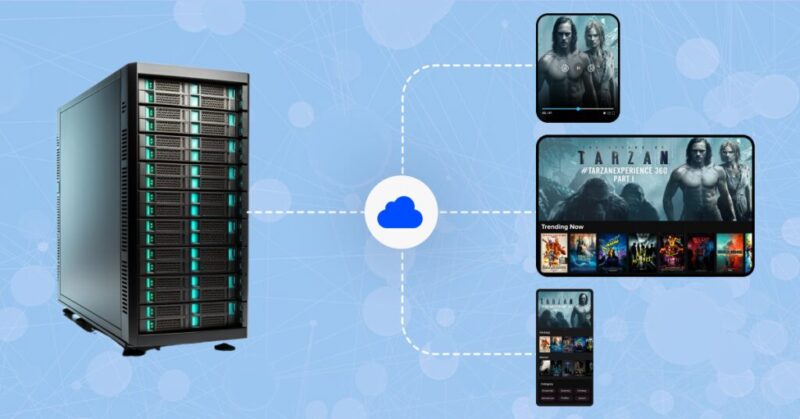
Picture this: A doctor’s office filled with patients, busy receptionists answering calls, and behind the scenes, a server humming away, housing sensitive patient data. Now imagine if that server is not HIPAA compliant. Yikes. Not only could that be a recipe for data breaches and fines, but it could cause a serious headache for everyone involved. Understanding HIPAA compliant server hosting is crucial for healthcare organizations looking to safeguard their patient data and stay on the right side of the law. In this text, let’s unpack the essentials of HIPAA compliance, its significance, the benefits of compliant server hosting, and how to pick the right hosting provider, all while ensuring your data remains as safe as a doctor’s signature in a locked drawer.
HIPAA Compliant Server Hosting

What Is HIPAA?
HIPAA, or the Health Insurance Portability and Accountability Act, is a U.S. law established to protect personal health information. Enacted in 1996, HIPAA sets the standard for safeguarding patient data across various platforms and entities. It is vital for any healthcare organization handling such sensitive information. Besides, this law outlines precisely how information should be stored, accessed, and transmitted.
Key Compliance Requirements for Server Hosting
When it comes to server hosting, HIPAA mandates several compliance requirements that organizations must adhere to. Firstly, any hosting provider must ensure sufficient physical security, think locks, cameras, and secure entrance protocols. Also, administrative safeguards are essential, ensuring only relevant personnel can access data. Also, technical safeguards, such as encryption, are critical to protect data during transmission and storage. Organizations must conduct risk assessments regularly to identify vulnerabilities and ensure they meet HIPAA standards.
The Importance of HIPAA Compliance for Healthcare Organizations
Consequences of Non-Compliance
Ignoring HIPAA compliance can lead to severe repercussions. Organizations that fail to comply may face hefty fines, up to $50,000 per violation, with an annual maximum of $1.5 million. Beyond financial penalties, the damage to a reputation can be profound. Trust is hard to rebuild once patients feel their privacy has been compromised. So, maintaining compliance isn’t just about following the law: it protects both the organization and the patients it serves.
Benefits of Using HIPAA Compliant Server Hosting
Enhanced Security Measures
One of the most significant benefits of using HIPAA compliant server hosting is enhanced security. These providers carry out robust security protocols, including multi-factor authentication and regular security audits, ensuring data remains protected against breaches. By using secure server hosting, healthcare organizations adopt a proactive approach to data protection, keeping hackers at bay and safeguarding patient information.
Data Integrity and Availability
HIPAA compliant server hosting also ensures data integrity and availability. In practical terms, this means that patient data is not only securely stored but is also accessible whenever needed. Reliable backups ensure that data can be restored promptly in case of any mishaps. This combined approach minimizes downtime and provides peace of mind for healthcare providers and patients alike.
Choosing the Right HIPAA Compliant Hosting Provider
Key Features to Look For
When selecting a HIPAA compliant hosting provider, healthcare organizations should consider several critical features. First up, ensure that the provider offers full compliance support, including regular audits and compliance assessments. Secondly, robust technical support is essential, allowing organizations to troubleshoot issues without compromising security. Also, look for providers that offer scalable solutions, enabling organizations to grow without worrying about data security.
Evaluating Potential Partners
Industry Certifications and Standards
Next, evaluate potential hosting partners by examining their industry certifications and standards. Reputable providers typically hold certifications like HITRUST or ISO/IEC 27001, confirming their commitment to maintaining high security standards. Always ask potential providers how often they undergo independent audits and whether they have documented policies for data breaches.
Case Studies: Successful Implementations
HIPAA compliant server hosting has proven successful for many organizations. For instance, a small healthcare clinic that migrated to a compliant hosting provider witnessed a significant decrease in data breach attempts. Also, another large network of hospitals improved their patient trust and satisfaction scores after ensuring all their hosting services met HIPAA regulations. These cases underscore how compliance doesn’t just mean avoiding penalties but can also enhance a healthcare organization’s reputation and operational efficiency.
Beyond technological infrastructure, the human element plays an equally critical role in maintaining HIPAA compliance and optimizing daily operations. Many healthcare practices find that administrative burdens can significantly impact efficiency and divert focus from patient care. Implementing robust administrative safeguards, including well-trained staff, is crucial for preventing breaches and ensuring smooth workflows. For organizations looking to streamline their back-office tasks while upholding strict privacy standards, exploring virtual healthcare team solutions can offer a strategic advantage. These services provide expert support, allowing medical professionals to concentrate on their core responsibilities without compromising data security or operational flow.












